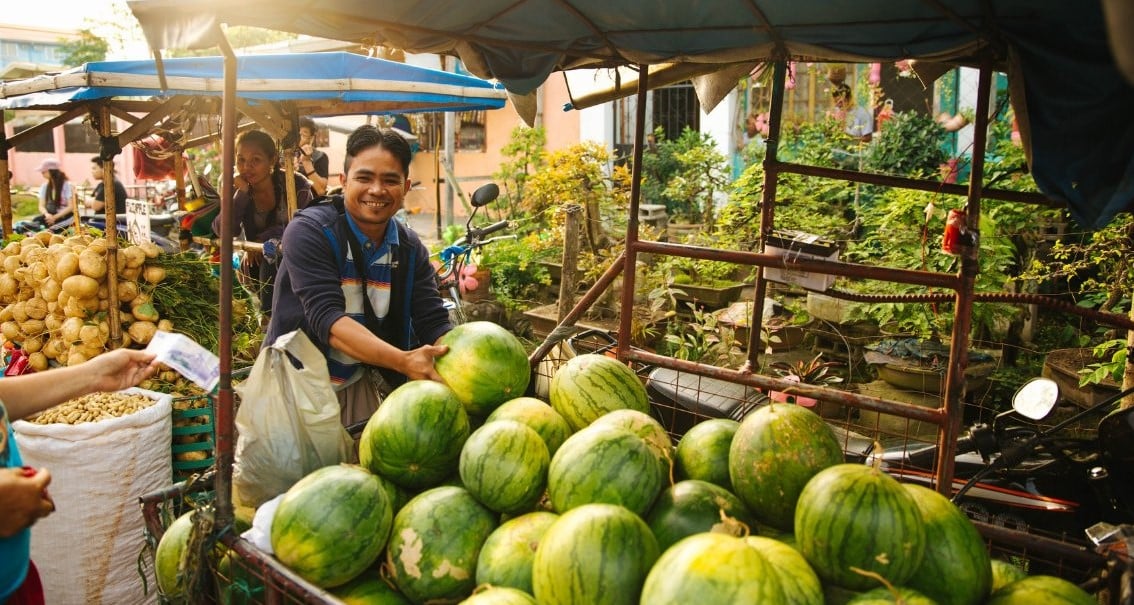UN officials and world leaders at a UN summit have issued an urgent warning over the future of the global food system and pledged to work together to ensure it remains sustainable and equitable for future generations.
The UN World Food Systems Summit 2021, which is taking place at the same time as the UN General Assembly, is designed to kickstart a global effort to “leverage the power of food systems to drive our recovery from the COVID-19 pandemic and get us back on track to achieve all 17 sustainable development goals by 2030.”
Speaking at the UN World Food Systems Summit 2021, Amina Mohammed, deputy secretary-general of the UN, said that our food systems are “failing.”
“Let’s consider that every day, over 800 million people are hungry. Or that millions of children are starving, while nearly a third of all food produced is lost or wasted. And this waste, today, is worth over $1 trillion,” said Amina Mohammed.
She further said that three billion people cannot afford a healthy diet. At the same time, 2 billion men, women, and children are overweight or obese. Our current consumption patterns are expected to generate over another $1 trillion in diet-related health costs.
However, she said that through sustainable food production systems, it is possible to feed a growing global population while protecting our planet.
“But this can only happen when we work together,” added Amina Mohammed.
The summit drew speeches from more than 85 presidents and prime ministers and garnered some big-ticket financial commitments. Among them: The Bill and Melinda Gates Foundation pledged $900 million, and the United States announced it would spend $10 billion, half domestically and half overseas, over five years.
Worldwide, more than 2 billion people don’t have enough to eat, while 2 billion are overweight or obese, and nearly a third of the food that gets produced ends up discarded, according to the UN. Meanwhile, a changing climate is posing new problems for agriculture, even as producing, processing, packaging, and distributing food accounts for one-third of the manmade heat-trapping gases blamed for global warming, UN Secretary-General Antonio Guterres noted.
According to a World Bank report released earlier this year, agriculture contributes 19-29 percent of the world’s entire greenhouse gas emissions, and so an urgent reform of that system, which produces food to the detriment of the planet, is much needed.
The UN World Food Systems Summit 2021, which is taking place at the same time as the UN General Assembly, is designed to kickstart a global effort to “leverage the power of food systems to drive our recovery from the COVID-19 pandemic and get us back on track to achieve all 17 sustainable development goals by 2030.”
Speaking at the UN World Food Systems Summit 2021, Amina Mohammed, deputy secretary-general of the UN, said that our food systems are “failing.”
“Let’s consider that every day, over 800 million people are hungry. Or that millions of children are starving, while nearly a third of all food produced is lost or wasted. And this waste, today, is worth over $1 trillion,” said Amina Mohammed.
She further said that three billion people cannot afford a healthy diet. At the same time, 2 billion men, women, and children are overweight or obese. Our current consumption patterns are expected to generate over another $1 trillion in diet-related health costs.
However, she said that through sustainable food production systems, it is possible to feed a growing global population while protecting our planet.
“But this can only happen when we work together,” added Amina Mohammed.
The summit drew speeches from more than 85 presidents and prime ministers and garnered some big-ticket financial commitments. Among them: The Bill and Melinda Gates Foundation pledged $900 million, and the United States announced it would spend $10 billion, half domestically and half overseas, over five years.
Worldwide, more than 2 billion people don’t have enough to eat, while 2 billion are overweight or obese, and nearly a third of the food that gets produced ends up discarded, according to the UN. Meanwhile, a changing climate is posing new problems for agriculture, even as producing, processing, packaging, and distributing food accounts for one-third of the manmade heat-trapping gases blamed for global warming, UN Secretary-General Antonio Guterres noted.
According to a World Bank report released earlier this year, agriculture contributes 19-29 percent of the world’s entire greenhouse gas emissions, and so an urgent reform of that system, which produces food to the detriment of the planet, is much needed.


















